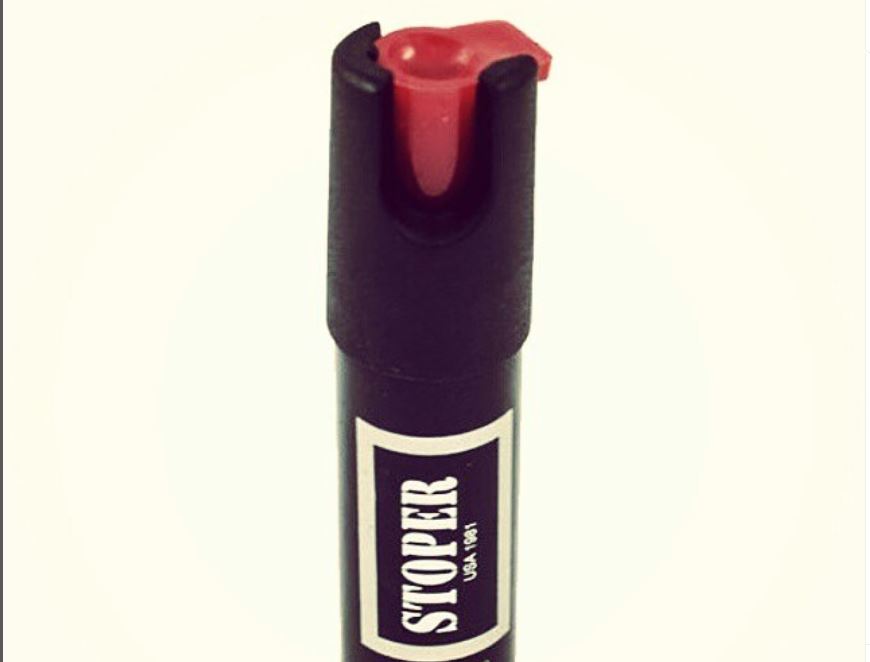Pepper spray is often considered as self-defence tool and has gained significant attention globally. While it is widely used in some countries for personal protection, its legality and acceptance vary from place to place. In the UK, it falls under stringent laws and regulations that everyone should be aware of. This article aims to provide a comprehensive understanding of pepper spray, focusing on its legal status, usage, and alternatives available in the UK for personal safety.
What is Pepper Spray?
Pepper spray is a chemical compound designed to irritate the eyes, causing pain, tears, and temporary blindness. Its active ingredient is oleoresin capsicum (OC), which is derived from chilli peppers. When sprayed in the face, it causes an immediate reaction, including coughing, difficulty breathing, and intense burning sensations. These effects typically last for about 20 to 90 minutes, making it a potent tool for incapacitating an attacker temporarily.
The spray is commonly used by law enforcement agencies for crowd control and by civilians for self-defence. However, its use varies globally depending on the legal framework of each country.
Is Pepper Spray Legal in the UK?
The short answer is no, pepper spray is illegal in the UK. Under the Firearms Act 1968, it is classified as a Section 5 firearm. This means that possessing, purchasing, or carrying pepper spray is considered a criminal offence, punishable by up to 10 years in prison. Even though it’s marketed as a self-defence tool in other countries, UK law treats it as a prohibited weapon.
Why is Pepper Spray Illegal in the UK?
The UK government’s stance on pepper spray stems from its commitment to minimising the presence of weapons in society. The rationale is that allowing pepper spray for personal use could lead to misuse or an escalation in violence. The UK’s restrictive approach aims to prevent the easy availability of potentially dangerous items, even if they are marketed as non-lethal.
Moreover, there’s a concern that making pepper spray legal could complicate situations for law enforcement. If civilians and criminals alike had access to the spray, it could pose risks during confrontations, making it harder for police to maintain control.
What Happens If You’re Caught With Pepper Spray?
Being caught in possession of pepper spray in the UK carries serious consequences. As mentioned earlier, it’s classified as a firearm, and penalties can include imprisonment and/or hefty fines. Even if someone claims to carry it for self-defence purposes, the law does not consider this a valid excuse.
Alternatives to Pepper Spray in the UK
While pepper spray is illegal, there are several legal alternatives available for self-defence in the UK. These options are designed to help people feel safe without breaking the law. Some of the most popular alternatives include:
- Personal Alarms
Personal alarms are small, portable devices that emit a loud, high-pitched sound when activated. The noise is designed to attract attention and disorient an attacker, giving the victim time to escape. They are easy to carry and can be attached to keychains or bags for quick access.
- Dye Sprays
Dye sprays are another legal alternative. Unlike pepper spray, dye sprays don’t cause physical harm. Instead, they mark an attacker with a brightly coloured, non-toxic dye, making it easier for the police to identify them later. The dye is often difficult to remove and can last for several days, serving as a visual deterrent.
- Self-Defence Training
Learning self-defence techniques is one of the most effective ways to protect oneself. Martial arts or self-defence classes teach individuals how to react in dangerous situations, using tactics to disarm or incapacitate an attacker without needing a weapon.
- Criminal Identifier Sprays
Similar to dye sprays, criminal identifier sprays are legal in the UK. These sprays leave a unique marker on an attacker’s skin or clothing, making it easier for law enforcement to trace and identify them. Some versions even contain UV markers that are only visible under UV light, ensuring that the attacker cannot easily detect or remove the substance.
The Debate Around Legalising
The debate around legalising pepper spray for civilian use in the UK is ongoing. Proponents argue that it would provide an effective means of self-defence, especially for vulnerable groups such as women and the elderly. They believe that the spray’s non-lethal nature could offer a safer alternative to knives or other weapons, potentially deterring crime without causing permanent harm.
However, opponents of legalising pepper spray maintain that its introduction could do more harm than good. They fear that making it widely available could lead to increased misuse, accidental injuries, or escalation in violent incidents. Furthermore, there’s a concern that criminals could easily obtain the spray and use it to commit crimes, turning it into a tool for harm rather than protection.
How to Stay Safe Without Pepper Spray
Although pepper spray is not an option for UK residents, there are several ways to enhance personal safety:
- Awareness: Always be aware of your surroundings. Avoid walking alone at night in poorly lit areas, and keep to well-populated routes.
- Communication: Let someone know your whereabouts, especially when travelling alone. Share your location via your smartphone and keep in regular contact.
- Confidence: Walk confidently and maintain good posture. Attackers are less likely to target individuals who appear self-assured and alert.
- Emergency Contacts: Keep emergency contact numbers on speed dial and know the local police station’s location in your area.
Final Thoughts
While pepper spray is a popular tool for self-defence in some parts of the world, it remains illegal in the UK. The government’s strict regulations aim to prevent misuse and reduce weapon-related incidents. Although this may leave some feeling vulnerable, there are various legal alternatives that can provide a sense of security. Personal alarms, dye sprays, and self-defence training are all effective ways to stay safe within the bounds of the law.
